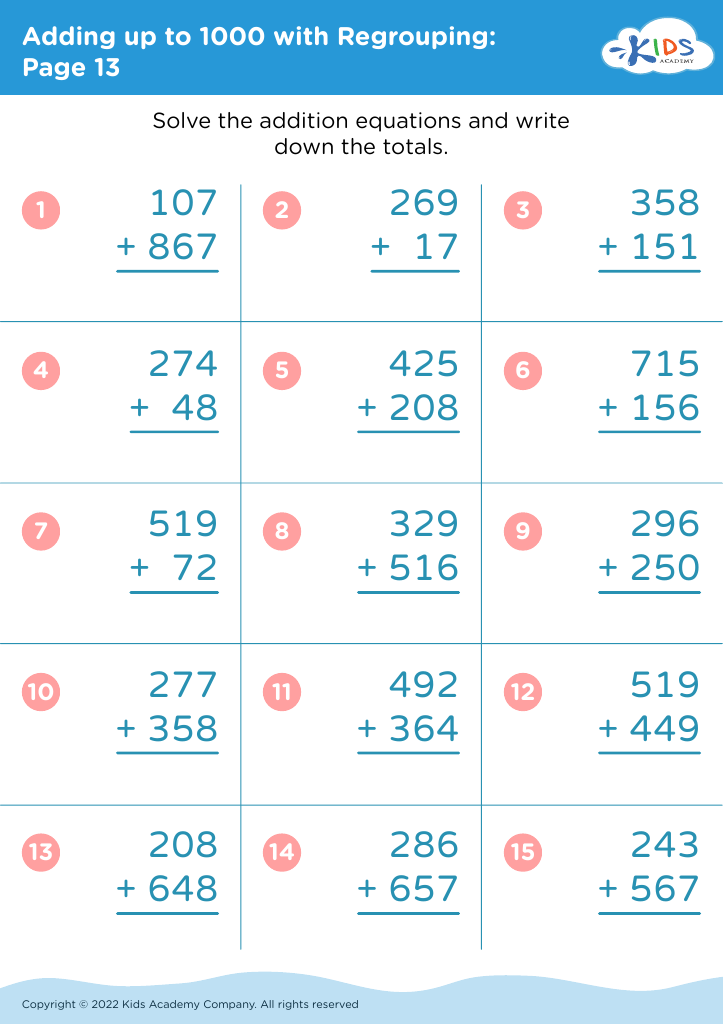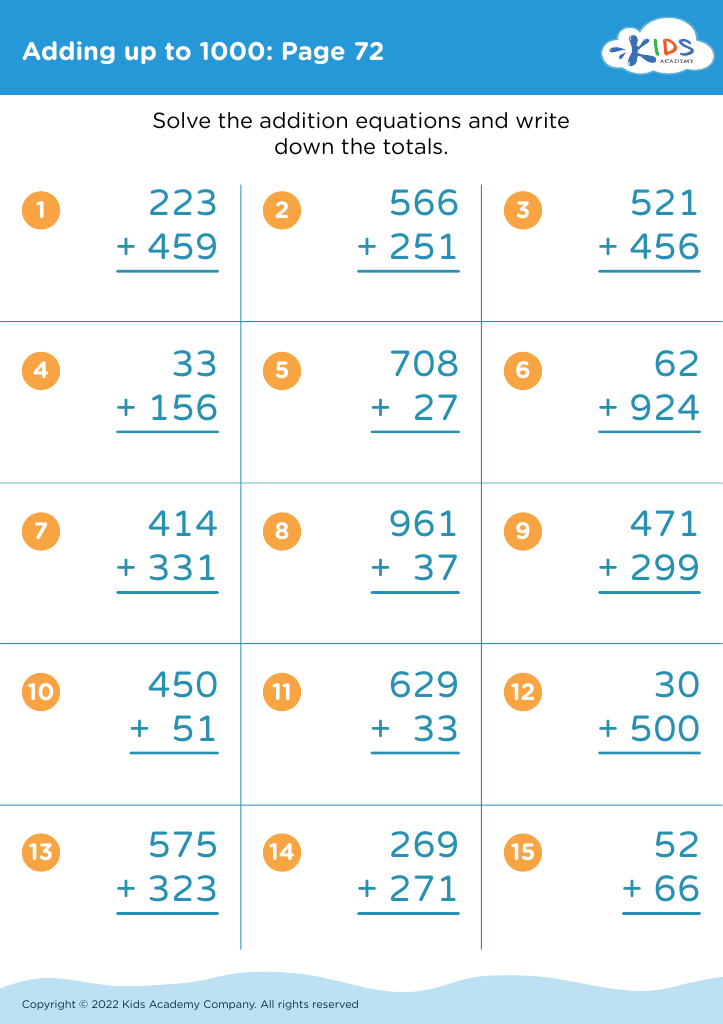Identifying shapes Adding up to 1000 Worksheets for Ages 4-8
3 filtered results
-
From - To
Looking for a fun and engaging way to enhance your child's math skills? Check out our "Identifying Shapes Adding up to 1000 Worksheets for Ages 4-8." These worksheets are thoughtfully designed to help young learners practice basic addition while also familiarizing themselves with shapes. Perfect for children aged 4-8, they aim to make learning enjoyable with vibrant, kid-friendly illustrations and interactive activities. Support your child's educational journey with these free printable resources from Kids Academy to build a strong foundation in math and geometry concepts, setting them up for success in their academic endeavors.
Identifying shapes and mastering addition up to 1000 are foundational skills critical for young learners, typically ages 4-8. For parents and teachers, ensuring children develop these abilities is paramount as they lay the groundwork for more complex cognitive processes and academic achievements in diverse areas.
Understanding shapes involves recognizing, categorizing, and describing geometric figures, fostering spatial awareness and visual perception. These skills are essential not only for geometry but for encompassing creativity and problem-solving abilities. Spatial reasoning supports activities such as reading, writing, and navigating everyday environments, enabling children to relate objects’ positions relative to each other effectively.
Mastering addition up to 1000 is equally significant. While young learners might initially work on simpler sums, gradually extending their capability to higher numbers builds numerical confidence and a robust mathematical foundation. This fundamental arithmetic promotes logical thinking, enhances memory, and prepares children for future concepts like multiplication and division.
Incorporating these skills through playful, engaging activities makes learning fun, ignites excitement for mathematics, and encourages a positive attitude towards challenges. Attentive parents and teachers can provide the nurturing and stimulating environment needed, ensuring children are well-prepared and capable of tackling more complex educational tasks as they progress in their academic journeys.














